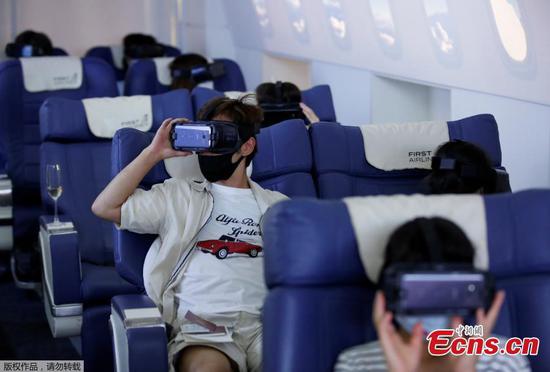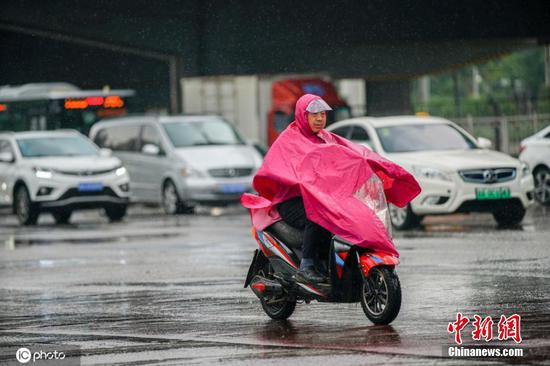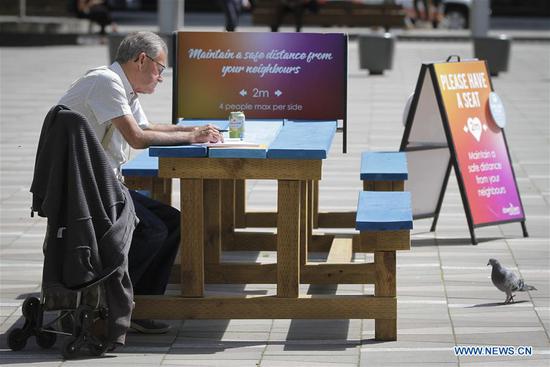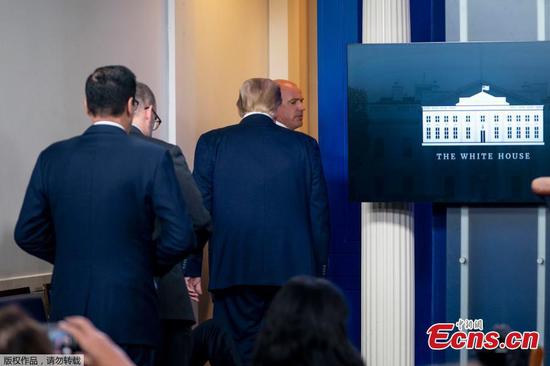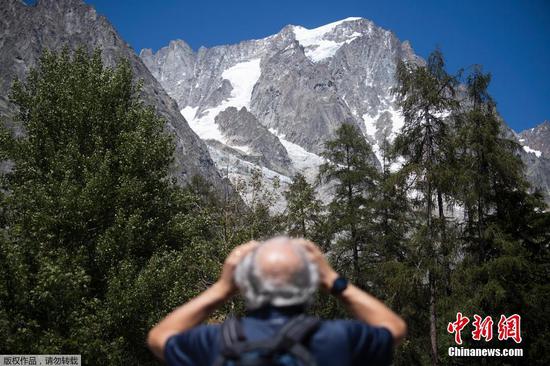HITTING CREATIVE TIKTOKERS
In just a few years, TikTok has become one of the most beloved apps among the global youth population, providing a platform for ordinary people to display their various talents through short videos.
Data by U.S. market research company Sensor Tower showed that TikTok has been so far downloaded 165 million times in the United States and over 2 billion times globally.
"I feel Trump just wants to get rid of it because he is scared about people having a voice against him," said Katie Mcpeake, a 19-year-old college student from Dublin.
"The ban will make everything worse because this was a platform for people to express themselves," Mcpeake said.
Michael Le from Britain, who has 36.3 million followers on TikTok, recorded a video in which he called the app the only positive outlet in the streak of tragedies that the world saw in 2020.
"It built so many careers, including mine, and it's been able to give me the opportunity to support my family, to have a voice, and to bring joy to my fans," Le said.
In Vilnius, rapper Sezzy, who has over 50,000 followers, told Xinhua TikTok is the best app for young talent right now, because "you can literally be at home, be talented and make the whole world watch you."
Michal "Wiciu" Witkowski from Poland, who has garnered 790,000 followers, told Xinhua the ban will certainly affect the Polish community, hitting many creators and users.
Panni, a 17-year-old boy from Hungary, said the ban is going to cause a big change in the lives of his generation because they all love the app and some even earn money by being influencers.
Nicolas Kovacich, a 19-year-old student in Rome, said TikTok trends unite people, eliminate fake news content, and allow a free-form of communication that has a rare "positive social power."
PROTECTIONISM IN ESSENCE
"When it comes to seeking reasons to suppress foreign firms, the U.S. will surely go for invoking national security, personal rights protection and people's privacy," said Marios Mavrides, a Cypriot economist and member of parliament.
The ban is not based on national security, but protectionism, said Mao Xuxin, principal economist at London-based think tank National Institute of Economic and Social Research.
"As we know, TikTok follows the rules in the countries where it operates, and the practices that it adopts are the same as the U.S. social media companies like Facebook and Twitter," he noted.
Mao added that the ban aims to increase the market dominance of U.S. tech giants, which are already under a year-long U.S. congressional investigation and scrutiny of the European Union.
However, as an opinion piece in the Financial Times has pointed out, "the extent to which the U.S. tech sector has become dependent on China is under-appreciated."
Noting that "the two tech worlds are connected via a tangle of wiring," the opinion warned that "the great uncoupling would cause huge economic pain to hundreds of U.S. tech companies."
Ling Liu, business lawyer at Eversheds Sutherland (Germany) LLP, told Xinhua that Washington has often abused the wide-ranging intervention power provided by U.S. federal law, the International Emergency Economic Powers Act, to carry out its foreign economic policy.
Such a ban on Chinese apps like TikTok "will accelerate debates over preventing the abuse of emergency powers under the broad guise of national security," Ling said.
Discrimination of Chinese companies and their apps might face First Amendment problems, while the whole case may turn into a dangerous precedent against the open markets, he warned.











